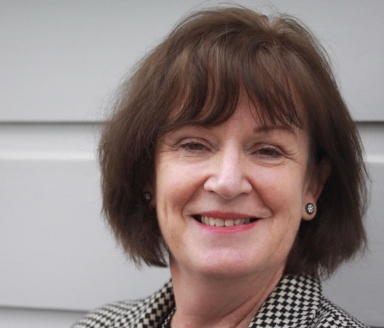With the ageing of the population, increasing numbers of New Zealanders are experiencing dementia, a group of symptoms leading to changes in brain function. Women are at significantly greater risk than men.
More than one percent of the population are estimated to be dementia sufferers and this is expected to increase steadily with greater longevity and improved diagnostic tools.
The resulting economic cost to the country is around $1.7 billion a year, and this is forecast to increase to $4.6 billion by 2050.
Dementia Wellington is a non-profit organization working to making life better for people affected by dementia in the Wellington region. Anne Schumacher, the chief executive of Dementia Wellington, spoke at a Rotary Karori meeting on 27 February. 

While there is some institutional support for dementia patients in retirement villages, and through support groups such as the Marsden Club in Karori (backed by Rotary Karori), the majority of dementia patients live at home with assistance from carers. Without support, dementia patients can become isolated from the community.
Dementia is progressive and cannot be cured or slowed. There is though evidence that the onset risk can be slowed through maintaining good heart function, remaining physically active, dietary changes, mental stimulation, and social activity.
Dementia Wellington can develop individual tailored plans for each individual, including assistance with maintaining community connections, information and in-home support. It also works to educate the community and health care providers.
As a non-profit, Dementia Wellington relies on membership fees, fundraising and grants to supplement the partial funding it receives from DHBs. It also relies on volunteers to assist with fundraising or to work with dementia patients. Anne invited Rotary Karori members to consider supporting this work.